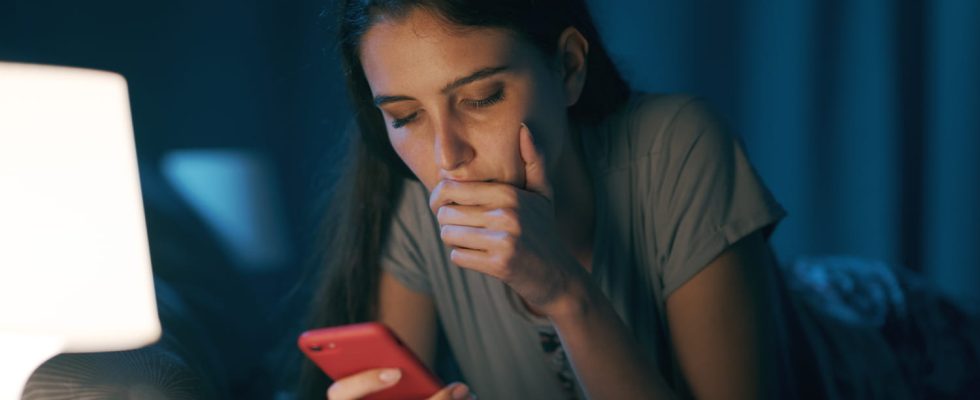Does the simple idea of no longer having a battery on your smartphone make you anxious? You may be nomophobic, that is to say addicted to your cell phone.
Born from the contraction of “no mobile phobia”, nomophobia is a relatively recent term which designates the phobia of not having your cell phone within reach. The term phobia designates a real neurosis for some people when they are separated from their phone. Nomophobia was revealed by a study conducted by the UK Post Office in 2008 which revealed that 53% of mobile phone users had symptoms of anxiety in case of loss, poor network coverage or low battery. According to a study commissioned by Bouygues Télécom in 2018, 62% of French people say they cannot do without their phone for an entire day.
“Nomophobia is directly linked to the strong development of dependence on information and the immediacy of interactions via social networks. This phobia is more particularly present in people who have a strong need for rewards.“, explains Carine Grzesiak, psychologist.
The characteristic manifestations of phone addiction and dependence are:
- incessant use of the telephone, in the street, in shops, in transport, while shopping and sometimes even at a doctor’s office.
- the appearance of anxiety when an anomaly or bug occurs, when the phone can no longer be found or it is impossible to recharge it
- a need to have their phone with them at all times (in their hands, near their bed at night, etc.)
- an irrepressible need to have to answer the phone, emails, messages…
- sometimes, a withdrawal into oneself
- signs of panic such as feeling choking, excessive sweating or increased heart rate if the phone is lost or forgotten.
People with nomophobia panic when their device is forgotten, has no connection, or runs out of battery. They feel the need to constantly check their messages and other social networks. “To make the diagnosis, it is necessary test the patient’s ability to regulate its use, by measuring the duration of use and wakefulness“, adds the psychologist. The diagnosis is also based on questioning the patient in order to know their level of dependence. In 2015, researchers and psychologists at the University of Iowa developed a study published in the journal Computers in Human Behavior and developed several questions to assess smartphone dependence. For example :
- Would you be bothered not to be able to access the data on your phone at any time?
- Does the thought of running out of battery make you anxious?
- Would you be worried about not being able to receive texts or calls?
You must gradually learn to use your cell phone less by trying, for example, to turn it off several times a day for 15 minutes at the beginning then gradually increasing this time to reach periods of 1 hour. This is similar to a form of desensitizationallergological treatment consisting of gradually reaccustoming the body to tolerate an allergen such as pollen for example.
It is also necessary to succeed in stop looking at your phone in the presence of other people and learn not to have it on you all the time when going out for example. But it is sometimes necessary, in extreme situations of severe addiction to consult a psychologist to get help controlling these symptoms.
“The prevention of nomophobia must be done from early childhood by learning to use mobile phones and other tablets moderately, by establishing a notion of limits (duration, times, number of consultations, duration of play for example)“, notes the specialist.
Thanks to Carine Grzesiak, psychologist.
